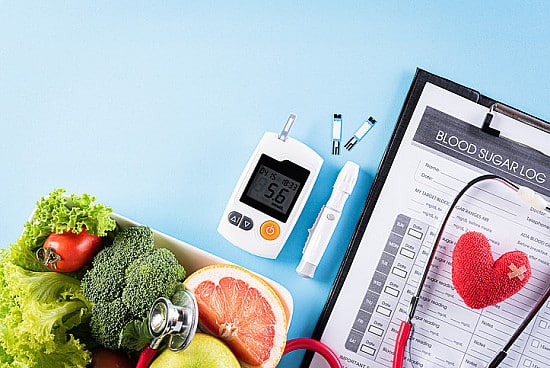Blood sugar monitoring is typically associated with managing diabetes, but an increasing number of people without diabetes are considering it. The advent of Continuous Glucose Monitors (CGMs) has made it easier than ever to keep track of glucose levels continuously. But is blood sugar monitoring without diabetes worthwhile? In this blog, we’ll delve into the potential benefits and considerations of using CGMs for individuals who do not have diabetes.
Understanding Continuous Glucose Monitors (CGMs)
Continuous Glucose Monitors (CGMs) are devices designed to track blood glucose levels continuously. Unlike traditional glucose meters, which require fingerstick samples, CGMs use a small sensor placed under the skin to measure glucose levels in the interstitial fluid. This data is transmitted to a receiver or smartphone app, offering real-time insights into glucose levels.
Benefits of Using Continuous Glucose Monitors Without Diabetes
Improved Insight into Glucose Trends
One of the main advantages of using Continuous Glucose Monitors without having diabetes is the ability to gain insight into glucose trends. Even if you don’t have diabetes, understanding how your glucose levels fluctuate throughout the day can provide valuable information about your overall health. For example, you might identify patterns related to diet, stress, or physical activity that impact your glucose levels.
Enhanced Dietary and Lifestyle Management
Monitoring glucose levels can help individuals make more informed decisions about their diet and lifestyle. By using a CGM, you can see how different foods and activities affect your blood sugar levels. This information can help you make healthier choices, such as reducing sugar intake or adjusting meal timing to maintain stable glucose levels throughout the day.
Early Detection of Potential Health Issues
Using a CGM can aid in the early detection of potential health issues that might not yet be apparent. For example, persistent high or low glucose levels might indicate metabolic issues or insulin sensitivity problems. Early detection can lead to timely intervention and preventive measures, potentially preventing the development of diabetes or other health conditions.
Optimization of Physical Performance
The use of Continuous Glucose Monitors by fitness enthusiasts and athletes to maximize performance is growing. By tracking glucose levels during workouts and activities, individuals can understand how exercise affects their blood sugar levels and make adjustments to their nutrition and hydration strategies. This can lead to improved performance, faster recovery, and better overall fitness outcomes.
Considerations for Using Continuous Glucose Monitors Without Diabetes
Cost and Accessibility
One significant consideration is the cost of Continuous Glucose Monitors. These devices can be expensive, and not all insurance plans cover them for non-diabetic use. If you’re considering a CGM without a medical necessity, you’ll need to evaluate whether the potential benefits justify the cost. Additionally, the accessibility of CGMs may vary depending on your location and healthcare system.
Accuracy and Calibration
While CGMs generally provide accurate glucose readings, they may require occasional calibration with traditional glucose meters to ensure accuracy. Without diabetes, you might not have the need to calibrate or use a CGM as frequently, which can make it challenging to maintain accurate data over time.
Data Interpretation and Management
Interpreting CGM data can be complex, especially for those without a medical background. Without a specific diagnosis or health condition, it might be challenging to understand and act on the data provided by a CGM. It’s important to work with a healthcare provider or nutritionist who can help interpret the data and provide guidance on how to use it effectively.
Potential for Unnecessary Anxiety
Monitoring blood glucose levels continuously without a clear medical reason can lead to unnecessary anxiety or concern about your health. It’s essential to approach glucose monitoring with a balanced perspective and avoid over-interpreting data that may not have clinical significance. Regular consultations with a healthcare professional can help manage any concerns that arise from using a CGM.
More Read About: Is Continuous Glucose Monitoring Effective for Lowering A1C?
How to Determine If Blood Sugar Monitoring Is Right for You
Assess Your Health Goals
Before deciding to use Blood sugar monitoring, consider your health goals and objectives. Do you want to learn more about your general health, enhance your athletic performance, or optimize your diet? Understanding your goals will help determine if a CGM is a worthwhile investment for you.
Consult with a Healthcare Professional
Consulting with a healthcare professional is a crucial step in determining whether blood sugar monitoring is appropriate for you. They can provide guidance on the potential benefits and limitations of using a CGM based on your health status and objectives. They can also help interpret the data and make recommendations based on your findings.
Evaluate the Cost-Benefit Ratio
Consider the cost of Blood sugar monitoring and weigh it against the potential benefits. If you’re using a CGM for non-medical reasons, evaluate whether the information you gain will provide sufficient value to justify the expense. Explore options for purchasing or leasing a CGM, and check for any available financial assistance programs.
Review Alternative Monitoring Options
There are alternative methods for monitoring blood glucose levels and overall health. For example, periodic glucose testing with traditional meters, wearable fitness trackers, or health apps might offer sufficient insights without the need for continuous monitoring. Evaluate these options to determine what best meets your needs and goals.
Conclusion
Blood sugar monitoring using Continuous Glucose Monitors can offer valuable insights, even for individuals without diabetes. The ability to track glucose trends, optimize diet and lifestyle, and detect potential health issues can be beneficial for various health goals. However, it’s essential to consider factors such as cost, data accuracy, and potential anxiety before making a decision. Consulting with a healthcare professional and assessing your personal objectives will help you determine if using a CGM is worthwhile for you. By making an informed choice, you can better manage your health and achieve your wellness goals.


